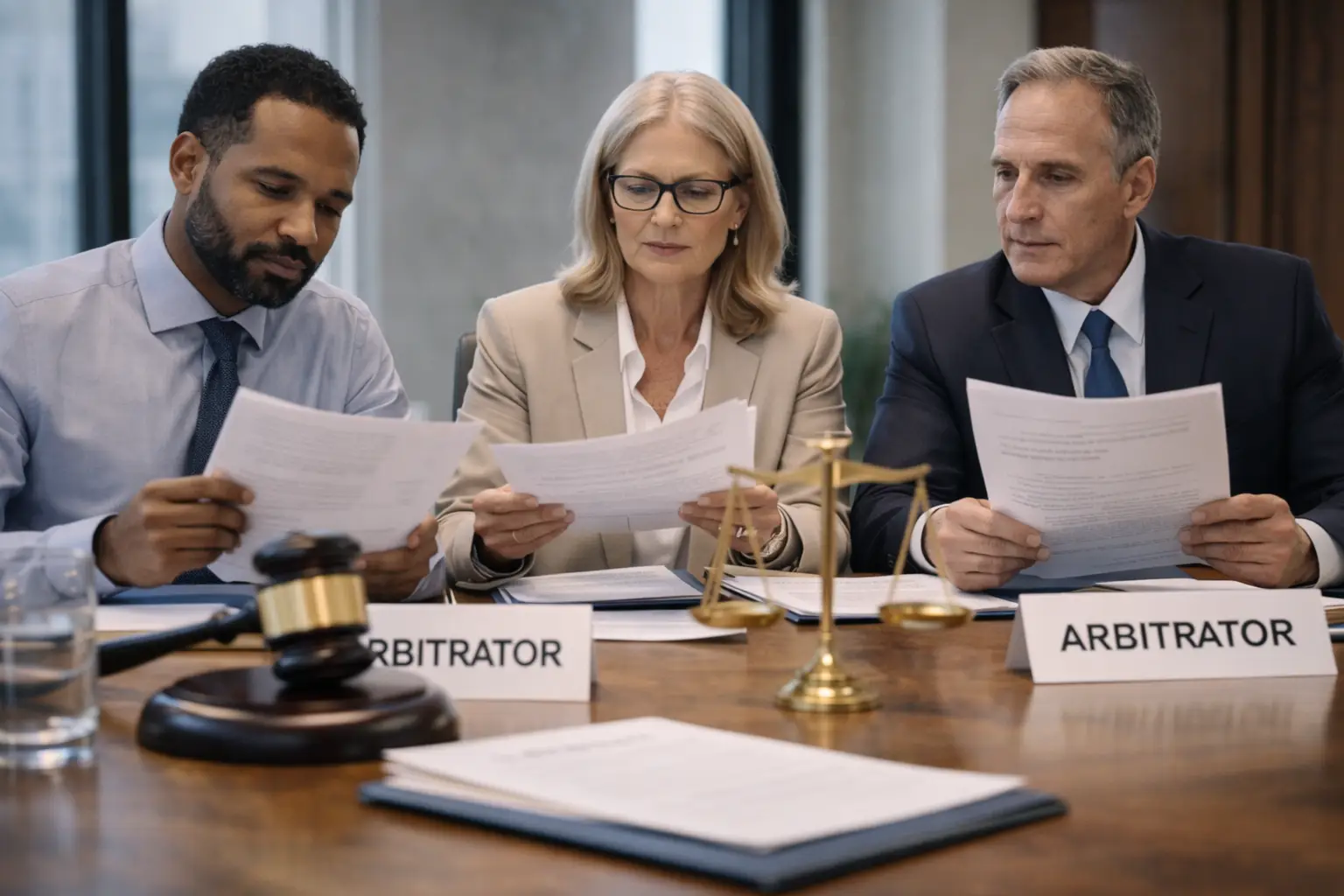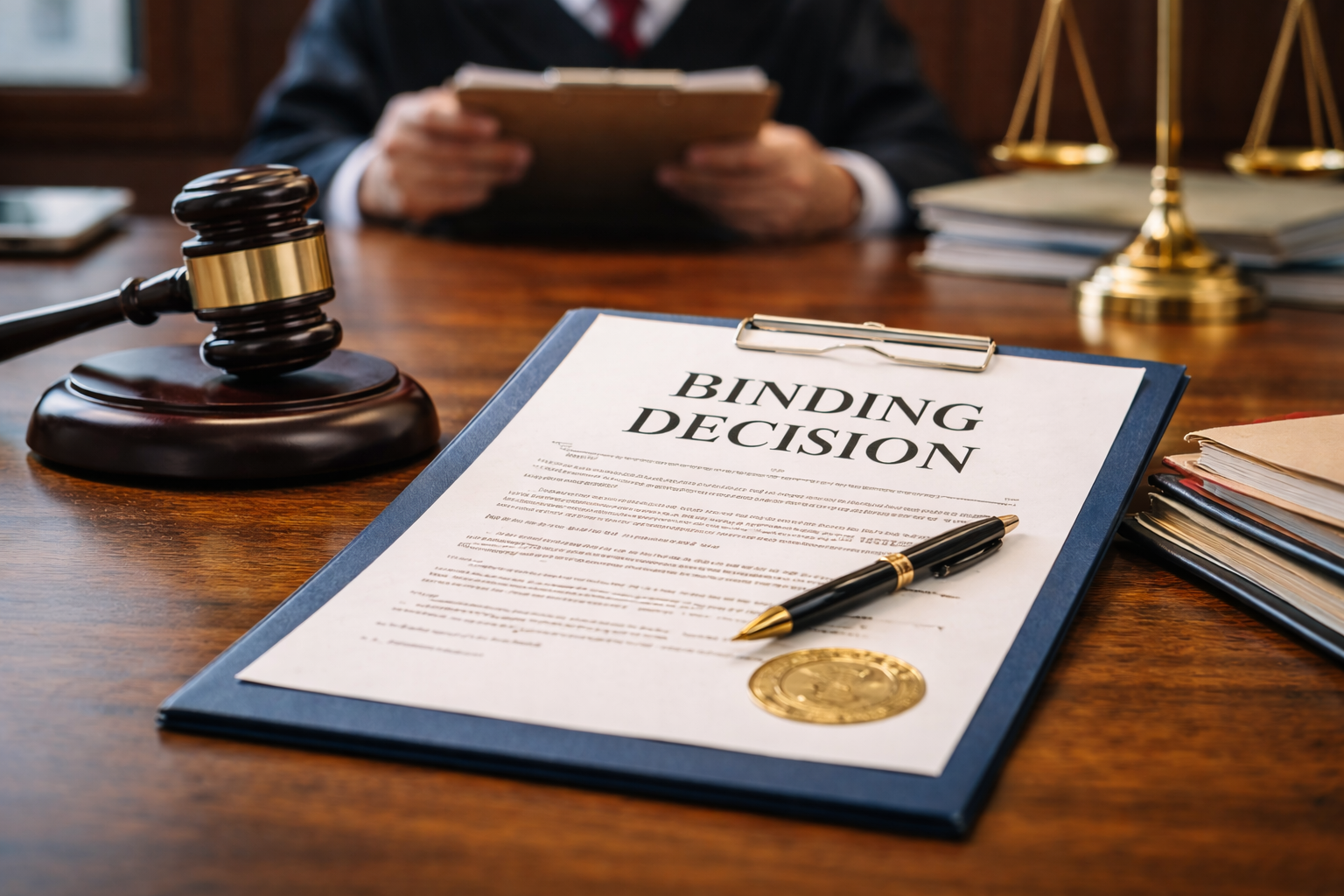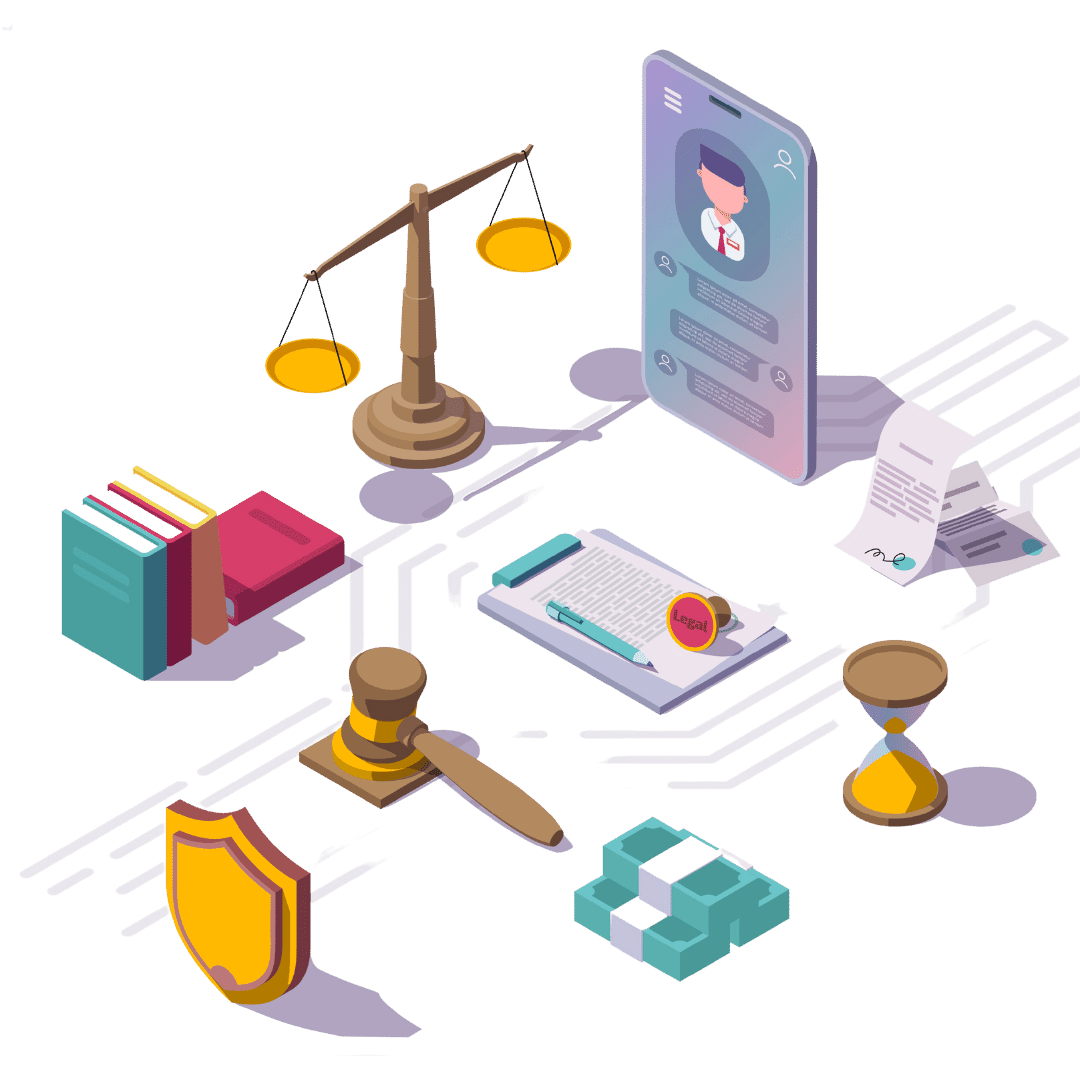Alternative Dispute Resolution (ADR)
Resolve disputes online with legally enforceable results!
Alternative Dispute Resolution (ADR) is a process of resolving legal disputes outside of court proceedings. It is a collective term for a range of processes and techniques designed to resolve disputes in a less formal and more efficient manner than the traditional litigation process. ADR provides an opportunity for disputing parties to resolve their differences amicably, with the help of a neutral third party, without the need for lengthy and costly court proceedings. In this article, we will explore the various types of ADR processes, their benefits, and how to use ADR to resolve disputes.
Types of ADR Processes
There are several forms of ADR processes available for resolving disputes, each with its unique features and benefits. The following are the most common types of ADR processes:
Arbitration
Arbitration is a process in which a neutral third party, called an arbitrator, makes a binding decision on the dispute after hearing evidence and arguments from the parties. Arbitration can be either non-binding or binding. In non-binding arbitration, the parties can reject the decision and proceed to court. In binding arbitration, the decision is final and can only be challenged in limited circumstances.
Mediation
Mediation is a voluntary process in which a neutral third party facilitates communication and negotiation between the disputing parties to help them reach a mutually acceptable resolution. Mediation is flexible, informal, and can be tailored to suit the specific needs of the parties. The mediator does not make a binding decision but helps the parties reach their own agreement.
Conciliation
Conciliation is a process similar to mediation, but the conciliator takes a more active role in facilitating communication and negotiation between the parties. The conciliator may also make suggestions for resolving the dispute. Like mediation, conciliation is flexible, informal, and voluntary, and the parties retain control over the outcome.
Facilitation
Facilitation is a process in which a neutral third party helps the parties clarify their issues, interests, and goals to facilitate communication and negotiation. The facilitator does not make any decisions or suggestions but provides a structured process for the parties to communicate effectively.
Early Neutral
Evaluation Early Neutral Evaluation (ENE) is a process in which a neutral third party evaluates the strengths and weaknesses of each party’s case and provides an opinion on the likely outcome if the case proceeds to trial. ENE is used primarily in complex cases to help the parties understand the risks and benefits of litigation and to encourage settlement.
Fact-finding
Fact-finding is a process in which a neutral third party investigates and reports on the facts of the dispute. Fact-finding is used primarily in cases where the parties dispute the facts of the case, and an independent investigation is necessary to resolve the dispute.
Mini-trial
A mini-trial is a process in which each party presents its case to a panel of senior executives or officials from both parties. The panel then provides a non-binding opinion on the likely outcome if the case proceeds to trial. Mini-trials are used primarily in complex commercial disputes.
Binding Decision
Binding Decision is a process similar to arbitration, but the parties agree to be bound by the decision of the neutral third party. Binding decision-making is used primarily in cases where the parties need a quick and final resolution.
Using ADR to Resolve Disputes
ADR can be used to resolve disputes in various subject matters, including employment, contracts, construction, consumer disputes, and many others. The following are the steps to follow when using ADR to resolve disputes:
Navigating ADR Services
The first step in using ADR to resolve disputes is to contact an ADR service provider. Many private providers offer ADR services, as well as federal government agencies such as the Equal Employment Opportunity (EEO) office. Check the official website of your jurisdiction to find the appropriate ADR program or contact information for a neutral third party, such as an ombudsman. In some cases, an ADR program may be required by law, such as an arbitration clause in a contract.
Choose the Appropriate ADR Process Once you have contacted an ADR service provider, you should choose the appropriate ADR process for your dispute. Consider the nature of the dispute, the complexity of the case, the relationship between the parties, and their willingness to participate in the ADR process. Consult with the ADR service provider to determine which process is most appropriate for your dispute.
Participate in the ADR Process Once you have selected the appropriate ADR process, you will need to participate in the process. This may involve attending mediation sessions, providing evidence and arguments to an arbitrator, or participating in a mini-trial. It is essential to prepare thoroughly for the ADR process to ensure that you present your case effectively and maximize your chances of success.
Reach a Settlement or Binding Decision The ultimate goal of ADR is to reach a settlement or binding decision that resolves the dispute. If the parties reach a settlement, it is typically memorialized in a written agreement that is signed by both parties. If the ADR process results in a binding decision, the decision is final and can only be challenged in limited circumstances.
Benefits of ADR
There are several benefits to using ADR to resolve disputes, including:
Cost-effective: ADR is often less expensive than litigation because it involves fewer formal procedures and shorter time frames.
Time-efficient: ADR processes are typically faster than court proceedings, allowing the parties to resolve their disputes more quickly.
Collaborative: ADR promotes collaboration and problem-solving between the parties, allowing them to maintain their relationship and preserve their interests.
Confidential: ADR processes are usually confidential, which means that the details of the dispute remain private.
Flexibility: ADR processes can be tailored to suit the specific needs of the parties, allowing them to design a process that works best for their situation.
FAQs
Is ADR legally binding? It depends on the ADR process. Mediation, conciliation, and facilitation are typically non-binding, while arbitration and binding decision-making are binding. The parties must agree to be bound by the decision of the neutral third party in binding ADR processes.
Can ADR be used in all types of disputes? Yes, ADR can be used in almost all types of disputes, including employment, contracts, construction, consumer disputes, and many others.
How does ADR compare to court proceedings? ADR is generally less formal and more flexible than court proceedings, allowing the parties to design a process that works best for their situation. ADR is also typically less expensive and time-consuming than court proceedings.
How It Works
Rapid Ruling is an online dispute resolution platform. We offer parties the ability to resolve a dispute in weeks instead of months or years with traditional state courts and are 100% online. We resolve your dispute by having a professional Arbitrator hear both parties, review their evidence, and render a decision.

- Submit Your Case
Gather your documents, photos, videos, and other evidence. Upload the files to our secure server, describe your claim, and identify the responding party.

- Online Arbitration Hearing
The hearing will either be a live phone call or a video hearing. Your Arbitrator will first ask both sides to tell their story. Then the Arbitrator will ask detailed questions to both parties based on the statements and evidence.

- Decision
Your Arbitrator will issue a decision within weeks of filing a claim, not years. This decision is legally binding and enforceable.
When can you use Online Arbitration?
Most contracts include arbitration clauses, even international arbitration, such as employment contracts, trading contracts, utilities, or other consumer contracts. In other words, when you sign up for mobile phone service, you likely agree to limit your dispute options to Arbitration only. These types of clauses are mandatory arbitration clauses. Voluntary arbitration causes leave the arbitration process as a choice to resolve your dispute but do not mandate you arbitrate. It is important to review any contracts you may have before beginning your dispute. Doing so will help you be that much more prepared for the already convenient, simplified process that is to come in online arbitration.
Why Choose Rapid Ruling?
Convenience. Taking your dispute to court, you’ll have to take time off work or step away from your business or family to drive down to the court, wait for your case to be called, dispute your claim, and go back. If you want to get a witness to join you, they’ll face the same bothers. With Rapid Ruling, our Hearings are short and online web-based from wherever you or your witness might be.
Rapid Results. You can get a decision in as little as weeks from the date both parties agree to use our service. The court can take months or years, if not longer!
Comfort. You don’t have to learn the rules of court or get in front of a crowded courtroom. Our Arbitrators are highly qualified and unbiased but not intimidating
Quality. RapidRuling’s assigned Arbitrators review all claims thoroughly and spend the time necessary for them to rule on the claim.
Alternative Dispute Resolution Blog
Read about alternative dispute resolution and how our online arbitration platform works.

What Is an Arbitration Panel?
I hear the same story from business owners all the time. A contractor in Florida signs a job, everything seems smooth, and then suddenly a disagreement over the contract terms pops up. Nobody wants to go to court, and most people do not want the costly

What Is a Binding Decision?
A binding decision is a ruling made by a neutral third party, such as a judge, arbitrator, or administrative body, that the parties involved must follow. In legal terms, it has the same weight as a court order. Unlike casual agreements or negotiations, a binding

Preventing Lawsuits in Joint Venture Agreements
Joint ventures (JVs) can be powerful tools for growth. Two businesses combine expertise, share resources, and expand into new markets. But for every successful real estate joint venture or international expansion, there are countless stories of deals falling apart



We Quickly Decide Disputes With Ease
Resolve your dispute with RapidRuling in 4 easy steps!
Begin your online arbitration or mediation, by visiting our eFile Portal, where you can submit your case.
The opposing party will receive notice from Rapid Ruling of the claim and shall respond within the time period, if any, specified.
The assigned Arbitrator will review the submissions and proceed to review the claim based on the Rules.
Your Arbitrator will issue an award within weeks of filing a claim, not years. This decision is legally binding and enforceable.




